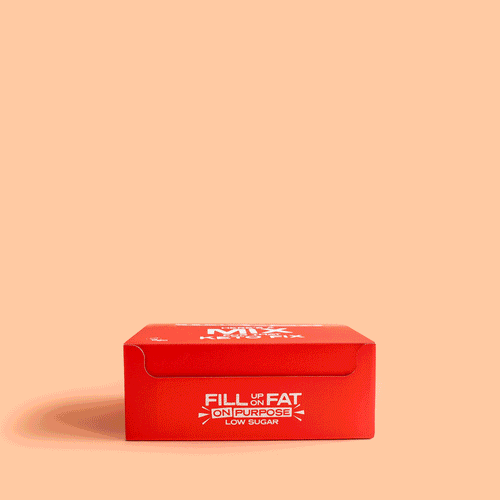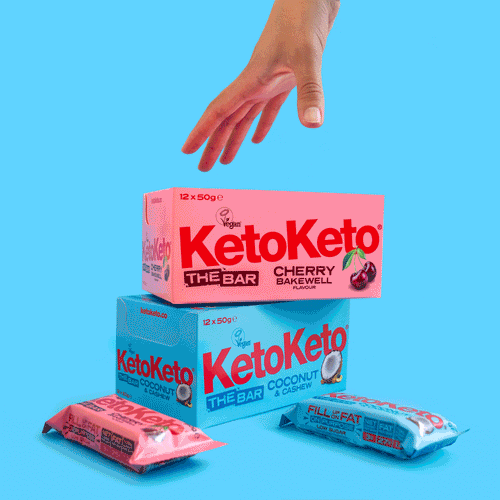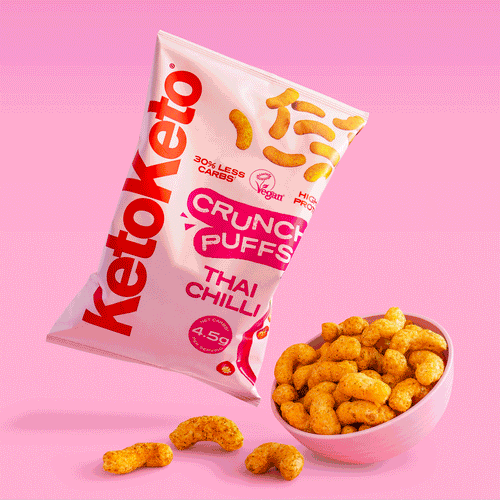The Ketogenic Diet (or Keto for short) is a low-carb, high fat diet that has become very popular these past few years. Highly researched, the keto diet requires you to reduce your carbohydrate intake and replace it with fat. By doing so, your body begins to use fat as a fuel source, as opposed to carbohydrates, a metabolic state called ketosis.
In Ketosis your body becomes incredibly efficient at burning fat for energy, as well as turning fat into ketones in the liver, which help supply energy to the brain. Increased ketones also help reduce blood sugar and insulin levels. Studies have also shown that ketogenic diets may even have benefits against diabetes, cancer, epilepsy and Alzheimer’s disease.
For most of us, we are used to eating a diet rich in carbohydrates. Glucose is your body’s preferred energy source and carbohydrates are the perfect source of these, for which your body converts them into blood glucose, or should we say blood sugar. Increased blood sugar levels in turn increase insulin and result in the body depending on this cycle for energy.
All the meanwhile, the body refuses to burn it’s fat stores when glucose is the primary fuel source. When we adopt a ketogenic lifestyle, the body has no choice but to use fat as a fuel source. Your body starts converting fatty acids into ketones, putting your body on a metabolic state known as ketosis
WHAT DO I EAT ON THE KETO DIET?
Typically, the keto diet uses the following macronutrient ratios:
- 20-30% of calories from protein
- 70-80% of calories from healthy fats (such as omega-3 fatty acids, avocados, olive oil, coconut oil, and grass-fed butter)
- 5% or less of calories from carbohydrates (for most people, that’s at most 30 to 50 grams of net carbs per day)
Some people mistake the Keto diet for a low-carb diet, although the two have similarities the aim of the Keto diet is to replace proteins and carbohydrates with fats. When we adopt keto eating habits, ketones take the place of carbs for many of the functions in the body.
Our brains and other organs can use ketones for energy more easily than carbs, giving mental clarity, improved mood, and reduced hunger when in keto. Not to mention the big benefit and a big factor for many for adopting keto, is that your body goes into a fat burning state during ketosis!
Ideal foods to eat on the keto diet include meat, eggs, nuts and seeds, as well as low carb vegetables such a leafy greens, cabbage, cauliflower, mushrooms, asparagus and celery. Low sugar fruits are recommended, such as berries, however avocados can be enjoyed as much as you like. Healthy fats and oils include; grass fed butter, coconut oil and butter, flaxseed oil, olive oil, MCT oil and MCT powder, Avocado oil and olive oil.
Our Keto bars contain only the best natural ingredients recommended for the Keto Diet. Check them out to help cut cravings and keep you on track.
FOODS TO AVOID ON KETO
Foods with a high carb content are best avoided on a keto diet, and it goes without saying that most processed refined foods (which are full of sugar) should be avoided.
Grains are full of carbohydrates and are not suitable for keto. Pastas, breads, rice and oats all come under this category and are seen as the number one food to avoid when adopting a ketogenic lifestyle.
Anything with a high sugar content should be avoided. Also high sugar fruits and starchy vegetables are high in carbs and not ideal when on keto.
THE TRUTH ABOUT SWEETENERS AND KETO
Sweeteners, also known as Polyols or sugar alcohols vary in suitability for the keto diet, depending on how they effect blood sugar levels. Many sugar alcohols are absorbed in the small intestine and have little impact on blood sugar and insulin levels.
It is also clear that with an abundance of low carbs snacks available, many are using sweeteners which have a very similar impact to sugar itself and should not be considered keto or even low carb. Here’s a break down, by comparison of how different sugar alcohols affect glucose and insulin. Glucose is a glycemic index and insulin index of 100.
- Erythritol: Glycemic index 0, insulin index 2
- Isomalt: Glycemic index 9, insulin index 6
- Maltitol: Glycemic index 35, insulin index 27
- Sorbitol: Glycemic index 9, insulin index 11
- Xylitol: Glycemic index 13, insulin index 11
Maltitol is the most commonly used sugar alcohol in processed foods and can be found in many protein bars on the market. Here at KetoKeto we use Erythritol and Xylitol, both which have minimum impact on blood sugar and insulin levels and which help you remain in ketosis. Our bars contain predominantly erythritol, with a small percentage of xylitol to keep our bars nice and tasty too.






